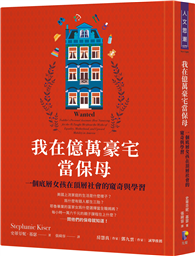Reading Digital Fiction offers the first comprehensive and systematic theoretical, methodological, and analytical examination of digital fiction from a cognitive and empirical perspective. Proposing the new concept of "medial reading", it argues for the centrality of an audience’s interest in, awareness of and/or attention to the medium in which a text is produced and received, and which we argue should be applied to reader data across media. The book analyses and theorises five generations of digital fiction and their reading including hypertext fiction, hypermedia fiction, narrative video games, app fiction, and virtual reality. It showcases medium- and platform-specific methods of qualitative reader response research across a variety of contexts and settings from screen-based and embodied interaction to gallery installation, and from reading group and individual interview to think-aloud methodologies. The book thus addresses the unique affordances of digital fiction reading by designing and reporting on new empirical studies focusing on hypertextuality, interactivity, immersion, as well as medium-specific forms of textual "you", ontological ambiguity, reader orientation and empathy. In so doing, the book refines, critiques, and expands cognitive, transmedial, and empirical narratology and stylistics by placing the reader of these new narratives front and centre.
| FindBook |
有 1 項符合
Reading Digital Fiction: Narrative, Cognition, Mediality的圖書 |
 |
Reading Digital Fiction: Narrative, Cognition, Mediality 作者:Bell 出版社:Routledge 出版日期:2024-04-18 語言:英文 規格:精裝 / 246頁 / 普通級/ 初版 |
| 圖書館借閱 |
| 國家圖書館 | 全國圖書書目資訊網 | 國立公共資訊圖書館 | 電子書服務平台 | MetaCat 跨館整合查詢 |
| 臺北市立圖書館 | 新北市立圖書館 | 基隆市公共圖書館 | 桃園市立圖書館 | 新竹縣公共圖書館 |
| 苗栗縣立圖書館 | 臺中市立圖書館 | 彰化縣公共圖書館 | 南投縣文化局 | 雲林縣公共圖書館 |
| 嘉義縣圖書館 | 臺南市立圖書館 | 高雄市立圖書館 | 屏東縣公共圖書館 | 宜蘭縣公共圖書館 |
| 花蓮縣文化局 | 臺東縣文化處 |
|
|
內容簡介
作者簡介
Alice Bell is Professor of English language and literature at Sheffield Hallam University, UK. She researches digital fiction, narratology, stylistics, and empirical literary methods. Her publications include: The Possible Worlds of Hypertext Fiction ( 2010), Digital Fiction and the Unnatural (co-authored with Astrid Ensslin, 2021), Possible Worlds Theory and Contemporary Narratology (co-edited with Marie-Laure Ryan, 2019), and Style and Reader Response (co-edited with Browse et al., John Benjamins Benjamins, 2021).
Astrid Ensslin is Professor of Digital Cultures and Communication at the University of Regensburg, Germany, where she directs the Digital Area Studies Lab (DASLAB). Her research sits at the intersections between digital culture, critical media studies, narratology, sociolinguistics, Digital Humanities and empirical audience research. Recent publications include The Routledge Companion to Literary Media (co-edited with Julia Round and Bronwen Thomas, 2023), Pre-web Digital Publishing and the Lore of Electronic Literature (2022), and Digital Fiction and the Unnatural (co-authored with Alice Bell, 2021).
|











